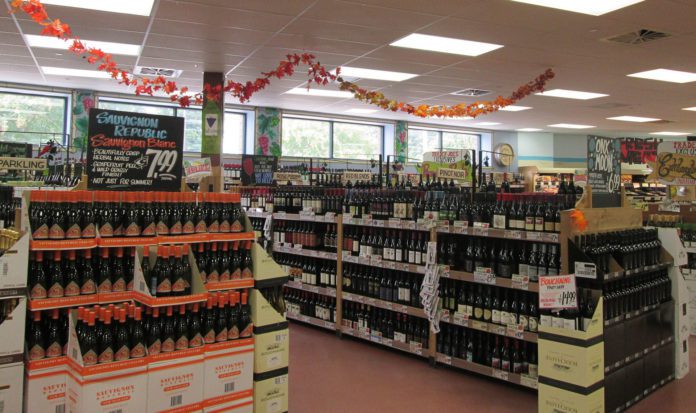BY DAVID PERRYMAN
 Will Rogers once remarked that Oklahomans would “vote dry as long as they were able to stagger to the polls.”
Will Rogers once remarked that Oklahomans would “vote dry as long as they were able to stagger to the polls.”
In truth, Oklahoma came into the union as a “dry” state and has had a long and colorful love-hate relationship with alcoholic beverages. For instance, it took the Oklahoma Legislature less than six months to establish state-owned “alcohol dispensaries” to give ailing Oklahomans access to alcohol for “medicinal purposes.”
Not to be outdone, bootleggers provided an ample supply of alcohol for those who were not ailing. These bootleggers were so efficient that they put the state facilities out of business and dispensaries were totally gone by 1911.
Oklahoma, already being legally “dry” but functionally wet, really experienced no change when Prohibition began in 1919, as our system of “private distilleries” was already well established in nearly every nook and cranny of the state.
Near the end of Prohibition, in the summer of 1933, Oklahomans approved the sale of low point [3.2%] beer, but even after the end of Prohibition in December 1933, higher strength beer, wine and other distilled spirits did not become legal here.
In April 1959, more than a quarter of a century after Prohibition ended, Oklahomans approved the current system of package liquor store sales where wine, spirits and beer above 3.2% alcohol could be sold, purchased and possessed without violating the law.
Over the next 58 years, the distribution and retail sales system has remained pretty much the same with the exception that in 1984 the electorate gave county voters the right to choose whether liquor could be served “by the drink.”
On Nov. 8, Oklahoma voters will cast their ballots on SQ 792. This state question contains a number of changes to laws dealing with the method and manner of distribution and sale of beer, wine and spirituous liquors.
If this state question passes, beginning on Oct. 1, 2018, consumers will notice three primary changes: 1] wine and beer above 3.2% alcohol may be sold in grocery stores and convenience stores; 2] package stores will be allowed to sell refrigerated beer with an alcohol content greater than 3.2%; and 3] package stores will be allowed to sell non-alcoholic items such as mixers and other products so long as non-alcoholic sales do not exceed 10% of the package store’s gross sales.
Supporters of SQ 792 claim that Oklahoma’s liquor laws are antiquated and are an inconvenience to consumers who will no longer be required to make multiple stops to purchase high point beer and wine. They say that the law will benefit liquor stores by allowing them to sell more products than currently allowed. They also say that since liquor stores will continue to be the sole source for hard liquor, most consumers will purchase all of their products there including mixers and accompanying merchandise that currently are not available there. Finally, they say that many craft beers require refrigeration and the new refrigeration laws would allow liquor stores to broaden their inventory of craft beers.
Opponents of SQ 792 claim that the new law would cause many liquor stores to close because of their inability to compete with the convenience of grocery stores and convenience stores and the added cost of refrigeration. They say that the new law would allow large chains like Walmart to take over the alcohol market in Oklahoma and since those large chains sell by volume, they would not stock slow moving beverages, thus decreasing consumer choice and harming many small breweries and wineries whose specialty or local inventory would not be picked up by the chain stores. They also say that the change could end the production of low-point beer. Finally, opponents say that the law would allow grocery and convenience stores to hire persons who are under 21 to stock and serve as checkers and would therefore allow younger persons greater access to these wine and high point beer, resulting in more abuse and less inventory control.
If the state question fails, Oklahoma liquor laws will remain the same as they currently exist. Where is Will Rogers when we need him?
– David Perryman, a Chickasha Democrat, represents District 56 in the Oklahoma House








